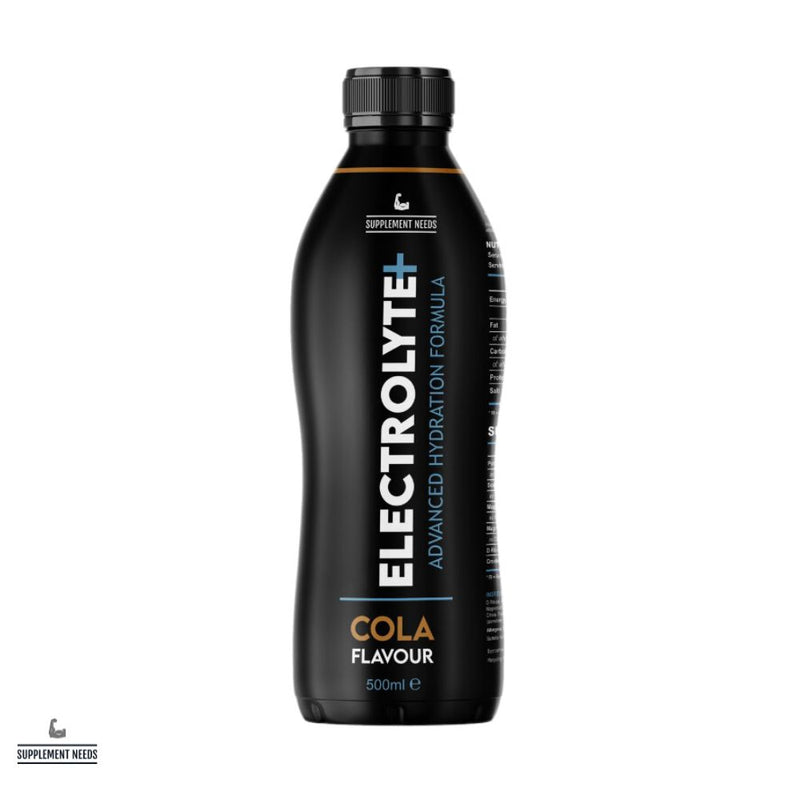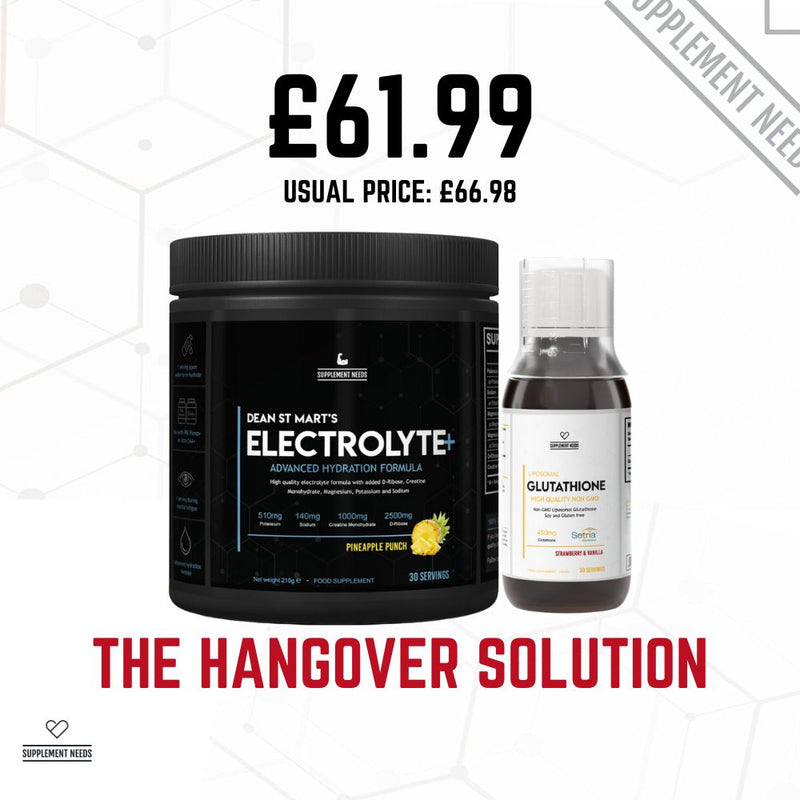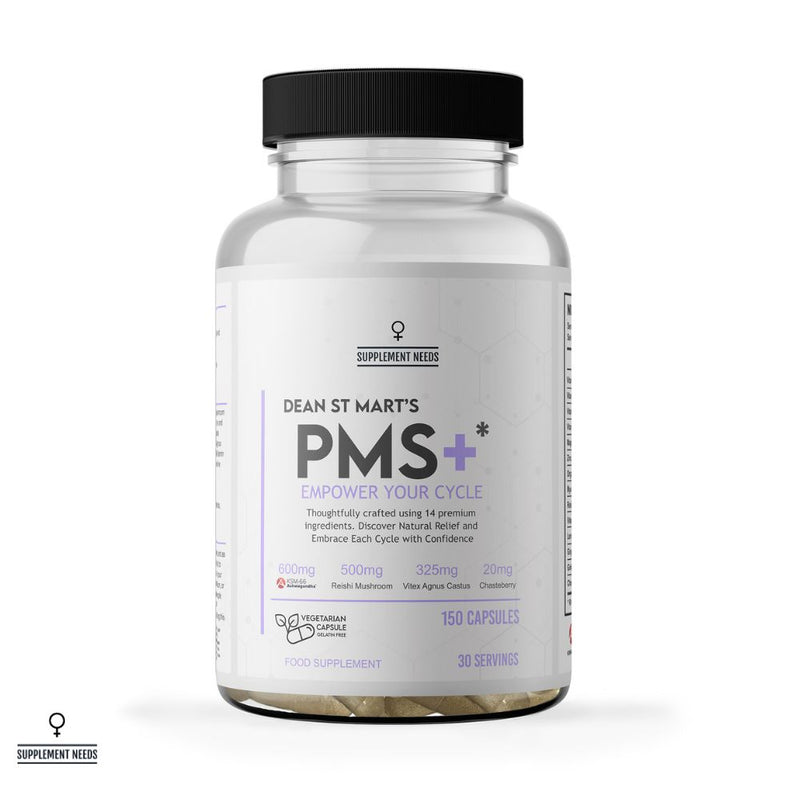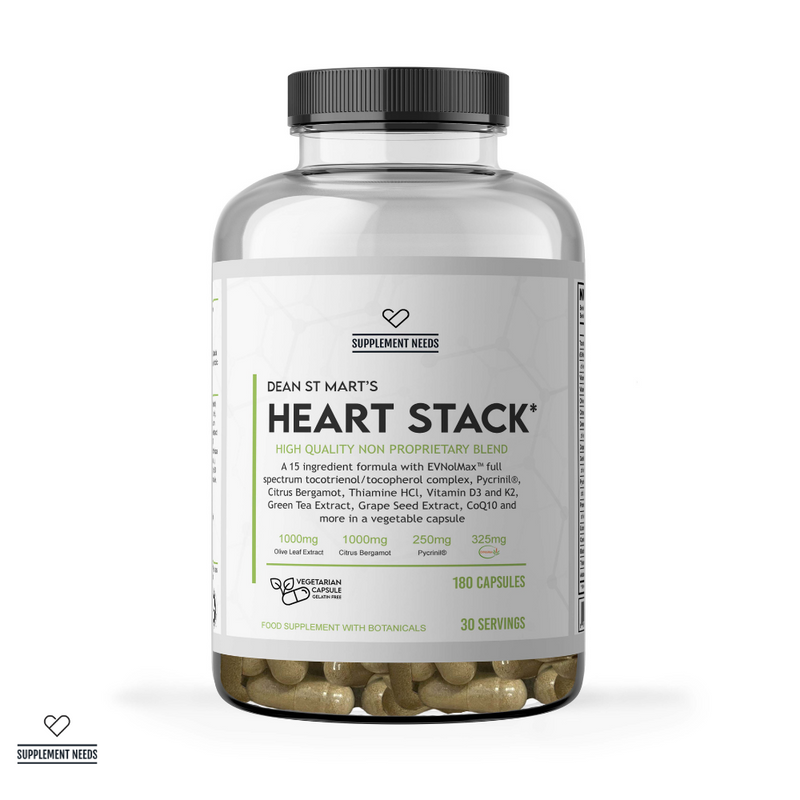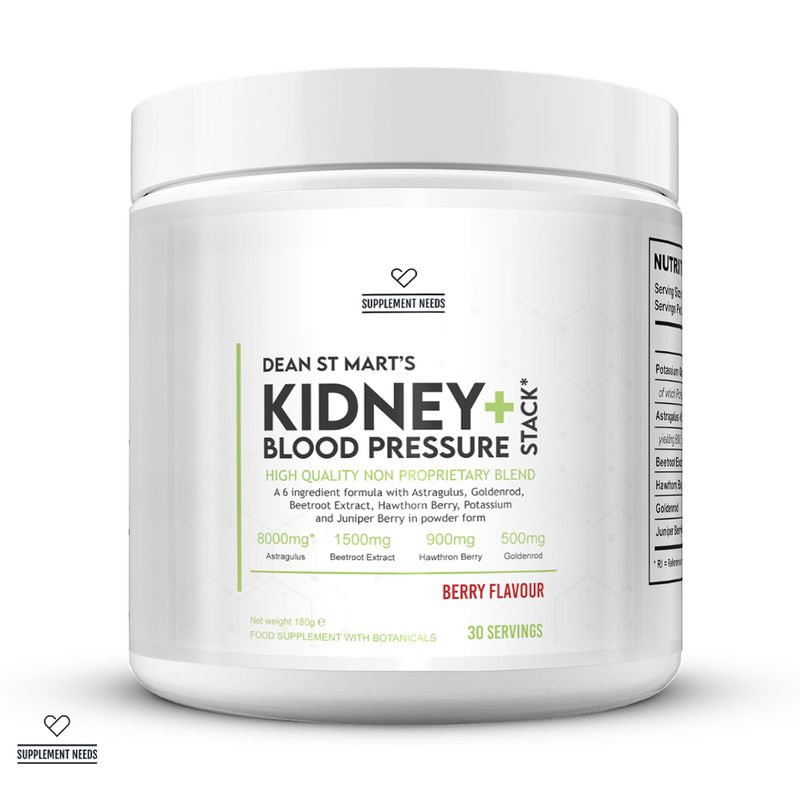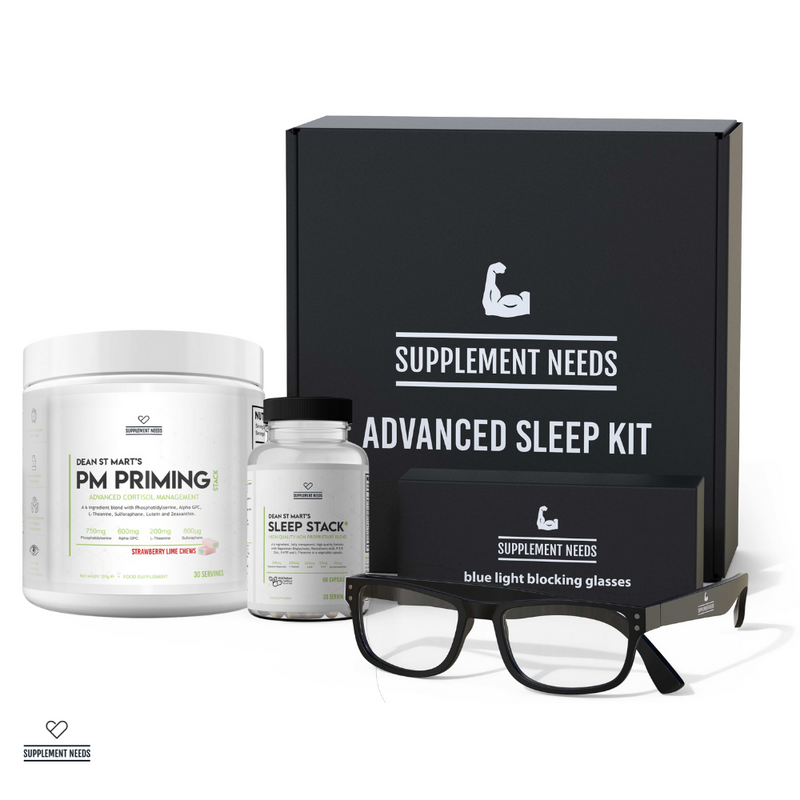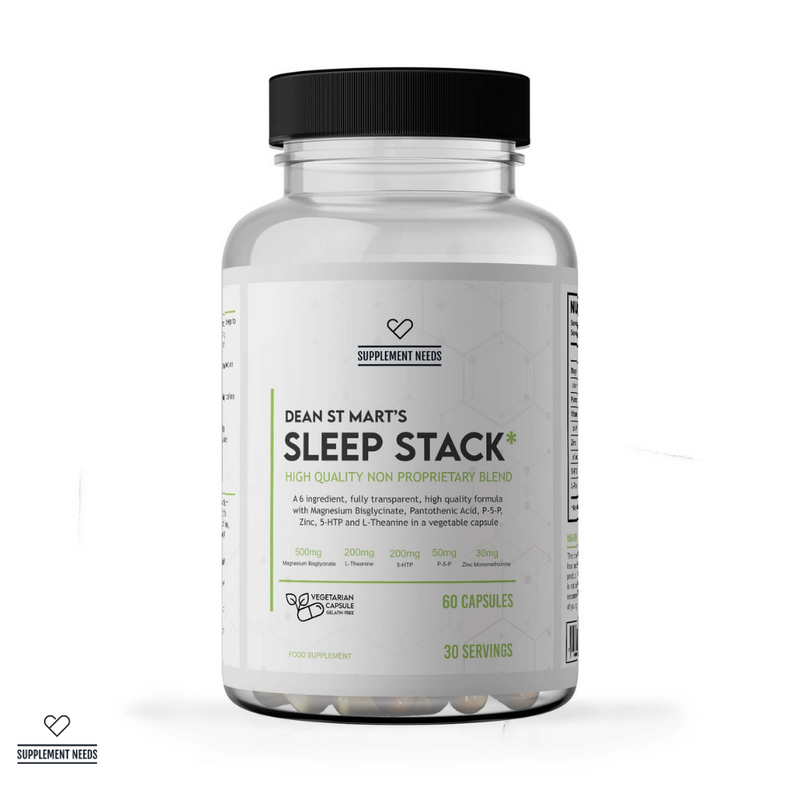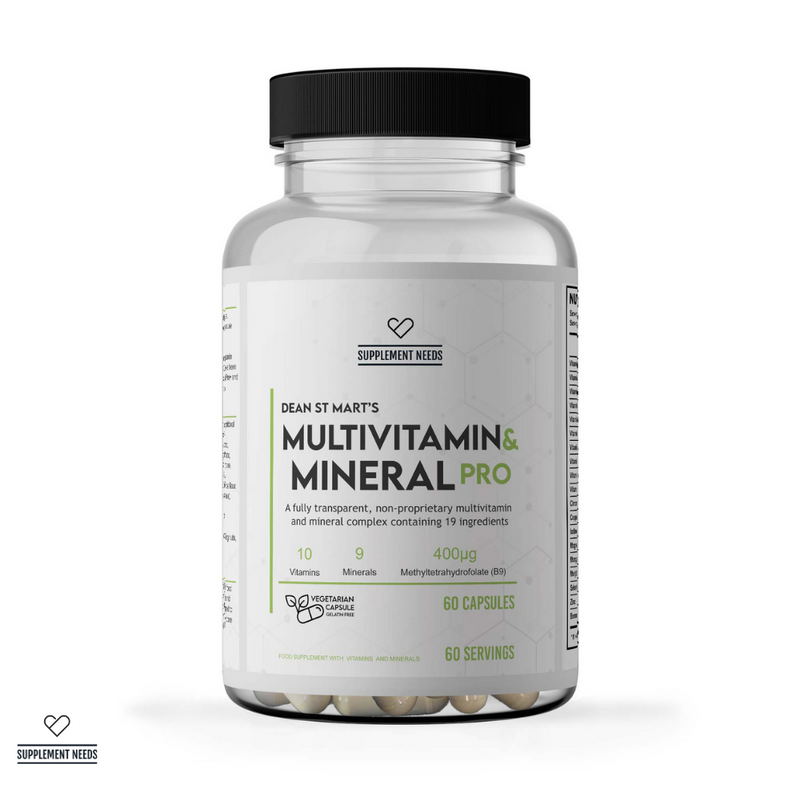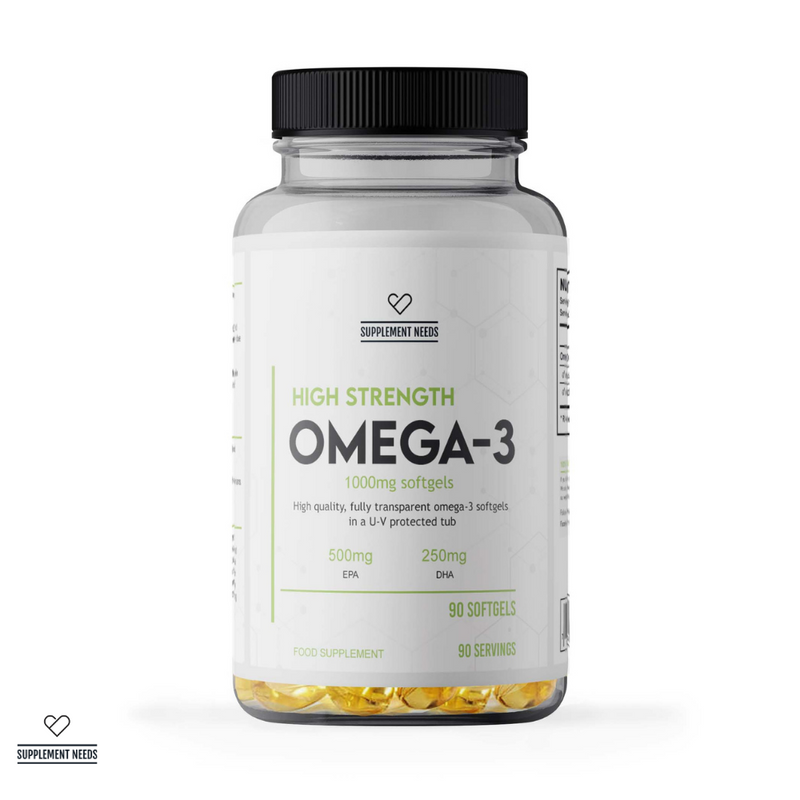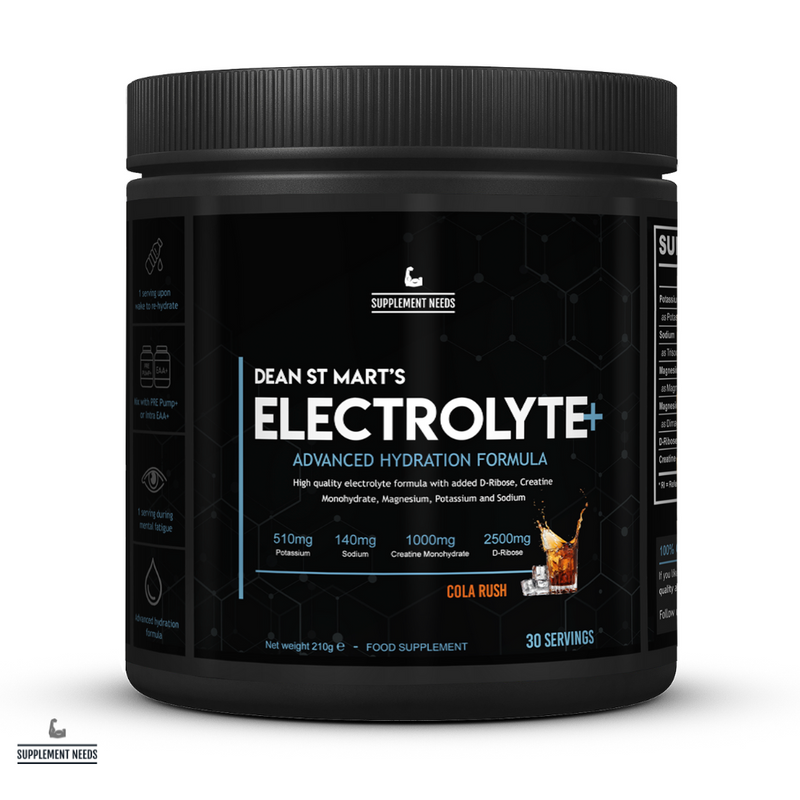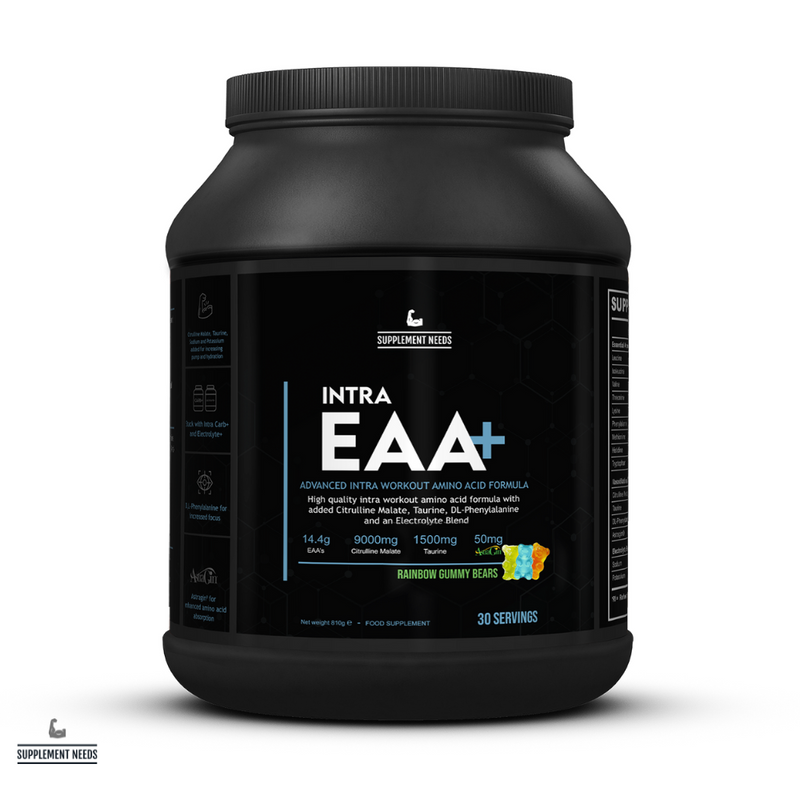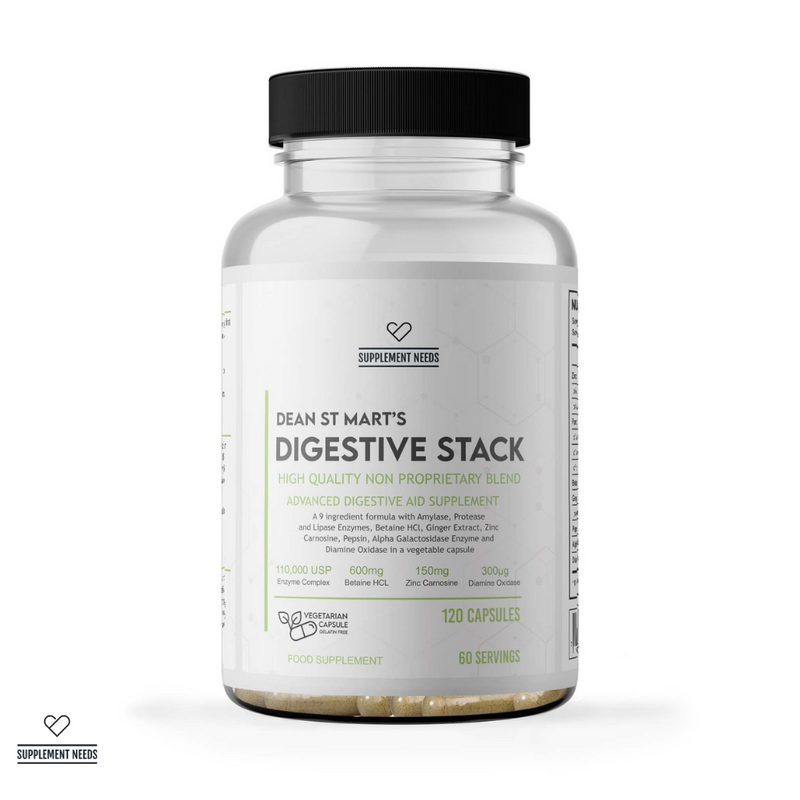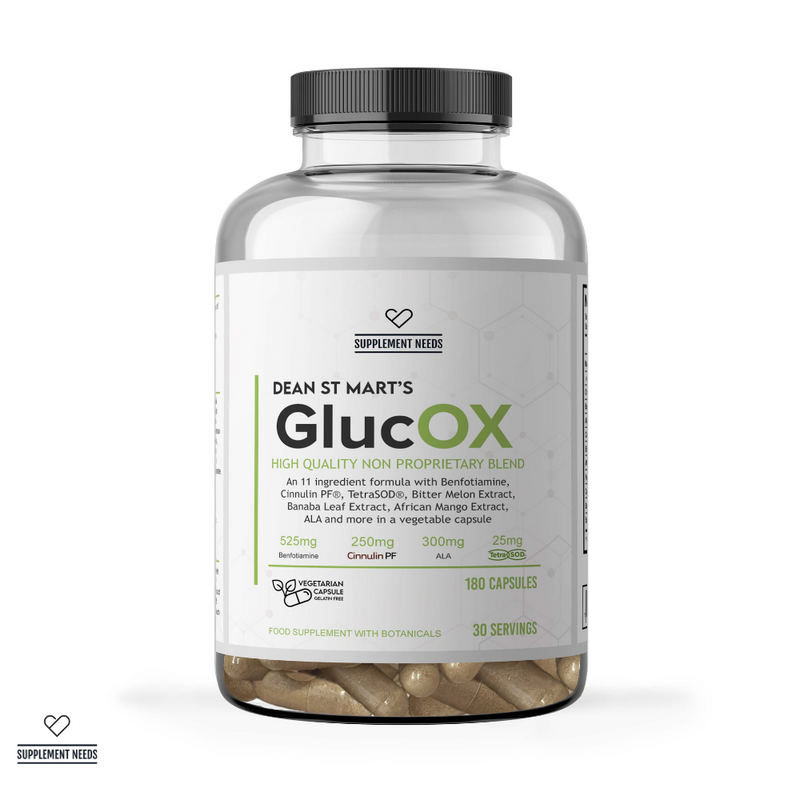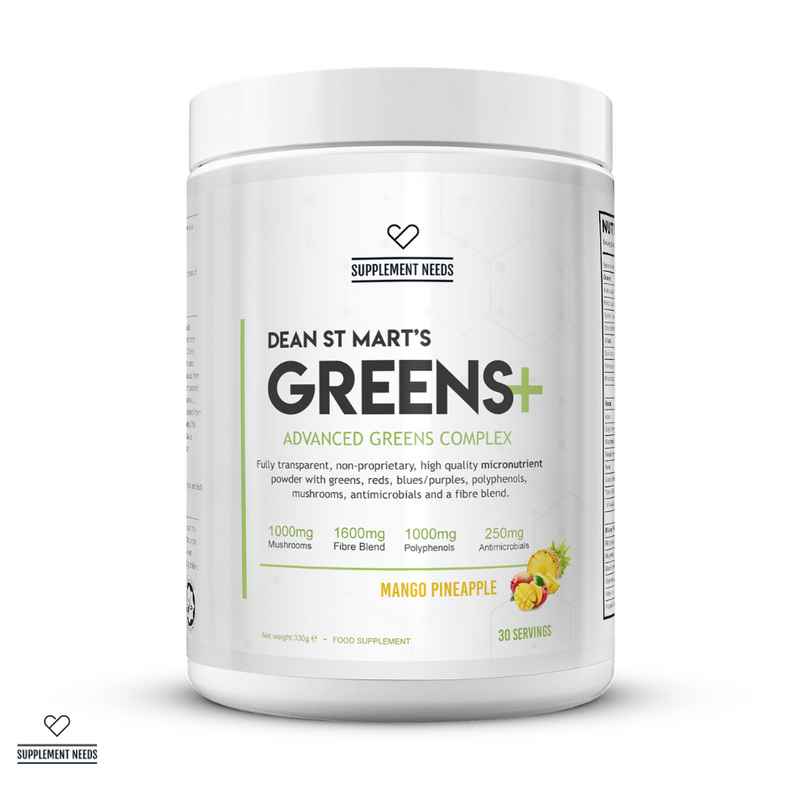Winter: it comes around like clockwork. And, with it, comes a swathe of illnesses that can throw your plans into chaos. But, what if you want to avoid picking up a winter cold or a dose of the flu? Is it possible to ‘boost’ your immune system? Keep on reading to find out more…
Understanding your immune system
Before you can figure out how to ‘boost’ your immune system, it’s important to first gain at least a broad understanding of what your immune system is and how it works.
So, what is it?
Your immune system consists of a series of organs, cells and proteins. It’s the job of these organs, cells and proteins to collectively:
- Fight disease-causing germs (that are technically known as ‘pathogens’). These germs can take the form of bacteria, viruses, fungi or parasites. Once your immune system has ‘defeated’ these pathogens, it removes them from your body.
- Recognise harmful substances that may have entered your body from your surrounding environment.
- To fight disease-causing changes in the body. For example, your immune system plays a critical role in fighting the growth and development of cancer cells1.
Drilling down further, we can see that your immune system can be divided into two ‘sub-systems’.
These sub-systems are as follows:
- The innate immune system.
- The adaptive immune system.
What is the innate immune system?
The first of these sub-systems is the innate immune system. As the name suggests, this refers to the part of your immune system that offers a general defence against a wide variety of germs and foreign substances that have entered your body.
It’s for this reason that you’ll often see the innate immune system referred to as the ‘non-specific immune system’. In other words, it’s kind of like having your own General Practitioner (GP) that can combat a wide variety of pathogens.
Your innate immune system tends to act rapidly. For example, if you accidentally cut your skin which allows bacteria to enter your body, your innate immune system will detect and destroy that bacteria within only an hour or two2.
The innate immune system protects your body from pathogens in two core ways:
The natural barriers of the skin and mucous membranes
Your skin and mucous membranes represent physical barriers past which pathogens struggle to pass.
In fact, as one study characterises it, the skin ‘functions as more than a physical barrier: it is an active immune organ’. Why? Because, according to the authors behind the study, ‘Immune responses in the skin involve an armamentarium of immune-competent cells and soluble biologic response modifiers including cytokines’3.
In other words, the skin doesn’t just act as a barrier, but thanks to chemical substances such as acids, enzymes and mucus, can prevent bacteria and viruses from gaining a foothold4. One study reinforces this point, stating that the sebum free fatty acids (FFAs) that are excreted by the skin ‘have shown antibacterial activity against a broad range of gram-positive bacteria, resulting in the suggestion that they are accountable, at least partially, for the direct antimicrobial activity of the skin surface’5.
Aside from your skin, your body's mucosal system can help prevent pathogens from entering and/or establishing a foothold within your body. As one study summarised, the mucins at the mucosal surfaces play a key part of our innate immunity6.
That’s a technical way of saying that the mucus in parts of your body such as your nose act as a barrier, contributing to the overall function of your innate immune system.
Immune system cells (defence cells) and proteins
Your innate immune system utilises a series of defence cells and proteins to protect your body from pathogens.
The first of these are known as ‘scavenger cells’ (phagocytes) and are so named as they enclose germs and digest them. Without going into too much technical detail, these scavenger cells are types of white blood cells that use the process of phagocytosis to engulf bacteria. Once they have done this, the phagosome acidifies and fuses with lysosomes in order to destroy its contents (e.g. the bacteria)7.
Meanwhile, there are nine proteins involved in the innate immune system. These proteins include proteases, cationic proteins, lysozyme, elastases, cathepsin G, and defensins. All of these proteins exhibit microbicidal activities8.
These proteins activate one another in a kind of chain reaction and contribute in a number of ways to your innate immune system, including:
- Marking germs as targets for scavenger cells.
- Attracting other immune system cells to the site of the pathogen(s).
- Destroying the cell walls of bacteria in order to kill them.
- Fighting viruses by destroying the viral envelope.
- Destroying cells that have been infected with a virus.
A third set of cells known as the NK Cells (Natural Killer Cells) are white blood cells that destroy infected and diseased cells such as cancer cells. As one study characterised these cells, they are ‘effector lymphocytes of the innate immune system that control several types of tumours and microbial infections by limiting their spread and subsequent tissue damage’9.
Together, your natural barriers and the immune system cells outlined above work as the ‘first line of defence’ against germs entering your body.
Note - most people are born with a fully functioning innate immune system (which is inherited). As you age, the innate immune response will decline10 which is why many older people become more susceptible to illness.
What is the adaptive immune system?
Should your innate immune system fail to destroy a pathogen that has entered your body, it’s the job of your adaptive immune system to step in.
Instead of the ‘one size fits all’ approach taken by your innate immune system, the adaptive immune system targets specific pathogens.
However, in order to target a specific pathogen, your adaptive immune system must first identify what it is. For this reason, the adaptive immune system is much slower to ‘work’ than your innate immune system.
Think of the last time you had a bad cold. It’ll generally take between one and two weeks11 before you start feeling better and back to normal. During that time your adaptive immune system will be identifying the pathogen and creating specific antibodies to fight it.
The result is that the adaptive immune system can very accurately combat specific pathogens (although you’ll have a period of feeling unwell). What’s more, your adaptive immune system is able to ‘remember’ pathogens once it has identified and fought them. It’s for this reason you can only get certain illnesses once in your life, as your adaptive immune system has a ‘record’ of said illnesses and has made you ‘immune’ to future exposures to them12.
“But,” you may be asking, “how does the adaptive immune system work?”
The answer is lymphocytes and antibodies. Specifically, the adaptive immune system responds to pathogens using:
- T lymphocytes (also known as T cells).
- B lymphocytes (also known as B cells).
- Antibodies.
Let’s take a look at how each of these work below:
T lymphocytes
Found in the tissue between the body’s cells, T lymphocytes are produced in bone marrow before they move to the thymus via the bloodstream. Once they have matured in the thymus, T lymphocytes then travel continuously between the tissues and organs of the lymph system (e.g. spleen, tonsils, lymph nodes) and the bloodstream13.
When T cells encounter an antigen (a substance that triggers an immune response. This can include cells that have been infected by a virus e.g. they have ‘digested’ an antigen which is identified by the T cell) it ‘activates’.
T cells can be crudely divided into two types; helper T cells (which assist other cells of the immune system), and cytotoxic T cells (which kill virally infected cells)14. However, it’s important to note that these two types of T cell can be further categorised into types that match specific germs.
It may be a slightly simplistic analysis, but T lymphocytes essentially have three main functions:
- Helper T cells help to kick start the adaptive immune response. They help activate B cells to secrete antibodies and macrophages to destroy microbes. They also help activate cytotoxic T cells15.
- These cytotoxic T cells destroy cells infected with an antigen such as a virus.
- Some helper T cells go on to become ‘memory T cells’, remembering which germs were defeated. These helper T cells help the immune system to respond rapidly should there be another infection.
B lymphocytes
Like T lymphocytes, B lymphocytes (also known as B cells) are produced in the bone marrow. However, unlike T cells, B cells remain in the bone marrow to mature.
B cells are white blood cells (like T cells) and like T cells circulate around the body using the lymphatic system and bloodstream. It is only when they encounter their specific foreign antigen (remember, both T and B cells are germ specific), will they stop circulating. At this point, they will proliferate and differentiate in order to tackle the identified antigen16.
B cells only kick into action once they have been ‘activated’ by helper T cells. Being germ-specific, the helper T cells will only contact the B cells that match the same germs they do.
So, what exactly do B cells do?
Well, once activated, B lymphocytes multiply and in the process of doing so transform themselves into plasma cells. In turn, these plasma cells produce large volumes of antibodies which then attack the specified germ.
Following the ‘defeat’ of the germ, some of the B cells will transform into ‘memory cells’ and thus become part of the adaptive immune system’s memory/immune response17.
Antibodies
As you’ve just read, antibodies are another important component of the adaptive immune system.
Produced by B lymphocytes, antibodies effectively ‘cruise around’ the bloodstream looking for pathogens. Once they’ve identified a pathogen, they will attach to them thus neutralising them. The act of an antibody attaching to a pathogen also attracts other immune system cells, further diminishing the viability of the pathogen.
As with certain other immune system cells, antibodies are antigen-specific, only attaching to antigens that exactly match their profile18.
Ways to support your immune system
Okay, so by now you hopefully have a clearer understanding as to what the immune system is and a broad outline as to how it works.
But, what can you do to support your immune system? Below, the Supplement Needs team has set out our top tips that can potentially keep your immune system in top shape.
Get plenty of sleep
Yes, it’s easier said than done, but you should aim to get a sufficient amount of sleep each night.
Why? Because it appears to be the case that sleep is linked with your immune system.
As per one study19 - which examined the sleep patterns of 164 healthy adults - those participants who slept fewer than six hours per night were more likely to catch a cold than those who did sleep six hours or more each night.
Furthermore, other studies20 have indicated that sleep and immunity are bidirectionally linked - that is, your quality of sleep may affect your immune system.
So, how much should you be aiming for each night? According to the National Health Service (NHS)21, ‘a healthy adult usually needs around 7 to 9 hours of sleep’ each night.
There are a number of things you can do to improve your sleep (and hopefully, by extension, your immune system). These include:
- Getting some exercise and being physically active during the day.
- Establishing a routine. Go to sleep at the same time each night and try to wake at the same time too.
- Avoiding large meals and stimulating substances prior to bed.
- Creating a quiet, calming atmosphere within your bedroom.
In addition to the above, you may wish to add a supplement to your diet that may contribute towards a healthy sleep cycle.
Here at Supplement Needs our product formulator Dr. Dean St Mart PhD has developed Supplement Needs Sleep Stack. This supplement has been designed to support the normal biochemistry of sleep which may support your body naturally falling asleep, and staying asleep.

Shop Now - Supplement Needs Sleep Stack
The ingredients of Sleep Stack include Zinc Monomethionine. This is a chelated form of Zinc, which means it is more bioavailable (e.g. more absorbable by the body).
And? Well, a number of studies22 have indicated that the dietary supplementation of Zinc can assist with sleep modulation (e.g. supporting the regulation of sleep).
Sleep Stack has also been formulated to contain Magnesium Bisglycinate. Again, this is a chelated form of the mineral Magnesium, meaning it’s easier for your body to absorb.
As certain studies23 have indicated, Magnesium supplementation may help improve some subjective measures of sleep quality.
Supplement Needs Sleep Stack also includes no sedative ingredients.
Think about inflammation
When inflammation occurs on the outside of your body, it’s fairly obvious, manifesting as swelling (typically around an injury such as a cut in the skin).
But, did you know that you can suffer from inflammation within your body? And, did you know that in some cases both acute and chronic internal inflammation can have a fairly drastic impact on your organs24 - and by extension - your immune system?
Uncontrolled acute inflammation can even become chronic, contributing to a variety of chronic inflammatory diseases25.
So, what can you do to reduce and/or avoid instances of internal inflammation?
The answer potentially lies in consuming a diet rich in antioxidant-dense foods. Great examples include:
- Green vegetables - such as broccoli, kale, sprouts and cabbage.
- Nuts - particularly almonds.
- Red wine - within safe limits, red wine can have antioxidative properties thanks to a chemical called resveratrol.
- Healthy fats - such as those found in avocados.
But, as you’ll be aware, it’s not always possible to consume enough of these foods to obtain antioxidants at a level that will reduce oxidative stress, which in turn leads to inflammation.
As such, you may wish to explicitly add a supplement to your diet to ‘top up’ the antioxidants in your body.
Arguably the best way of doing this is by adding a Glutathione supplement to your diet.
Glutathione is a tripeptide26 (being composed of cysteine, glycine, and glutamic acid) and is one of your body’s most important and potent antioxidants.
Your body naturally produces Glutathione, however, for a variety of reasons (including poor diet, disease, infection or chronic stress) levels can become low. Plus, it is thought that Glutathione production decreases as you age27.
Naturally, Supplement Needs has designed a Glutathione supplement that has been designed to help your body absorb its master antioxidant in the most efficacious way possible.

Shop Now - Supplement Needs Liposomal Glutathione
Supplement Needs Liposomal Glutathione has been designed around Setria® Glutathione - a clinically-studied2829 form of Glutathione which has been shown to increase blood Glutathione levels and support the immune system.
However, where our Glutathione supplement really stands out is in its delivery mechanism - it’s what’s known as a ‘liposomal supplement’.
Our product formulator, Dr. Dean St Mart PhD has recognised studies30 that indicate that the oral ingestion of Glutathione may not be as effective as intravenous delivery. The thing is, who wants to take Glutathione intravenously (that is, via an injection)?! Not us!
That’s why Supplement Needs has developed a novel solution; our Liposomal Glutathione uses an exclusive patented delivery technology that micro-encapsulates the ingredients in natural non-hydrogenated sunflower phosphatidylcholine derived liposomes. These can be as small as 50 nanometres, providing maximal bioavailability.
In other words, by being liposomal, our Glutathione supplement is far more easily absorbed by the body compared to more traditional forms of orally-consumed Glutathione.
If you’re looking for a Glutathione supplement, make it Supplement Needs’ Liposomal Glutathione.
Eat more healthy fats
You may have heard of the term ‘healthy fats’. This term refers to monounsaturated and polyunsaturated fats which are found in foods such as vegetable oils (olive oil, sunflower oil etc), nuts, seeds and fish31.
So far so good, but what exactly do healthy fats have to do with your immune system?
The answer is inflammation.
Chronic inflammation can suppress your immune system32.
Healthy fats and Omega-3 fatty acids in turn have been shown to fight inflammation33.
As such, eating healthy fats and considering adding an Omega-3 supplement to your diet could potentially help you ‘boost’ your immune system.

Shop Now - Supplement Needs Omega PRO+
Here at Supplement Needs we’ve developed Omega PRO+, our high-quality, high-strength Omega-3 supplement that’s designed to provide efficacious doses of EPA (eicosapentaenoic acid), DHA (docosahexaenoic acid), and DPA (docosapentaenoic acid).
However, Supplement Needs Omega PRO+ isn’t your run-of-the-mill omega supplement. In fact, it stands head and shoulders above the rest.
Why? Because of the nature of the DPA it contains.
Many omega supplements don’t even include DPA as it’s extremely difficult to obtain from fish oil constituents.
However, not only does Supplement Needs go to great lengths to obtain DPA, we do so in such a way that the DPA doesn’t degrade (keeping its Total Oxidation Value very low). The end result is that Omega PRO+ contains 240 mg of DPA.
So, if you’re looking to tackle inflammation and potentially support your immune system, consider adding Supplement Needs Omega PRO+ to your diet.
Consider supplementing your diet with Vitamin C
The chances are, you’ve been told since childhood that eating foods rich in Vitamin C can help ward off colds and illnesses of all kinds.
Whilst it may be tempting to dismiss this as an old wives tale, an increasing body of evidence suggests that ensuring you have sufficient Vitamin C in your diet really does help your immune system. It has long been recognised by scientists that Vitamin C ‘contributes to immune defence by supporting various cellular functions of both the innate and adaptive immune system’34. One long-standing study35 found that Vitamin C helps encourage the production of lymphocytes - those white blood cells we discussed earlier that play such an important role in your adaptive immune system.
The evidence of the beneficial link between Vitamin C and the immune system continues to grow as well. One study of 11,000 people, who took between 1,000 and 2,000 mg of Vitamin C a day, found a reduced duration of colds by 8% in adults and 14% in children36.
That’s a fairly substantial body of evidence. So, should you rush out and buy a Vitamin C supplement?
It depends. Whilst it’s possible to obtain sufficient Vitamin C from a regular healthy-diet, it’s worth bearing in mind that both the storing and cooking of many foodstuffs can diminish their vitamin content37. As one eye-opening study demonstrated38, boiling vegetables such as broccoli, spinach, and lettuce can reduce their Vitamin C content by as much as 50%.
It’s for reasons like this that some people choose to take Vitamin C supplements to ensure they don’t develop a deficiency.
Here at Supplement Needs we’ve developed a Vitamin C supplement that’s designed for maximum absorption by the body.

Shop Now - Supplement Needs Liposomal Vitamin C
Supplement Needs Liposomal Vitamin C uses a patented delivery technology that encapsulates the ingredients in a natural non-hydrogenated sunflower phosphatidylcholine derived liposomes. These liposomes can be as small as 50 nanometres, potentially allowing them to better permeate the lipid bilayer of cells and improve bioavailability.
As one study39 has indicated, liposomal forms of Vitamin C ‘produce circulating concentrations of Vitamin C that are greater than unencapsulated oral’ forms of Vitamin C.
Consider supplementing your diet with Vitamin D
Something else you may want to consider doing to support your immune system is to supplement your diet with additional Vitamin D.
That’s not just our opinion though.
The UK Government, based on the findings of the Scientific Committee on Nutrition (SACN), has recommended that adults consume 10 micrograms (10 μg) per day of Vitamin D40.
However, it appears that many people do not reach this daily reference nutrient intake (RNI). According to the British Nutrition Foundation41 almost 1 in 5 adults aged 19 to 64 years have ‘a blood 25-hydroxyvitamin D concentration of less than 25 nmol/L’ (25-hydroxyvitamin D being produced from Vitamins D2 and D3 in the liver).
The reason for this deficiency is thought to be largely down to the way in which the body obtains Vitamin D in the first place.
Vitamin D2 (ergocalciferol) is broadly available from a standard, healthy diet (it being naturally occurring in yeast). However, Vitamin D3 (cholecalciferol) is synthesised by your skin via sunlight; the 7-dehydrocholesterol in your skin absorbs UV B radiation and converts it into previtamin D3, which in turn isomerizes into Vitamin D342.
At the risk of oversimplifying, this means that if your skin isn’t exposed to enough sunlight, your body won’t be able to produce enough Vitamin D3 for your needs.
And, that’s a problem, given that studies have shown that Vitamin D can ‘modulate the innate and adaptive immune responses’. Furthermore, ‘Deficiency in Vitamin D is associated with increased autoimmunity as well as an increased susceptibility to infection’43.
It’s for this reason that the National Health Service (NHS) recommends that ‘everyone should consider taking a daily vitamin D supplement during the autumn and winter’44.
Naturally, if you’re reading this, then you’re probably going to want to supplement your diet with Vitamin D. And, you’re going to want to supplement it with the best possible form of Vitamin D.

Shop Now - Supplement Needs Vitamin D3
So, check out Supplement Needs Vitamin D3. Unlike cheap supplements, our Vitamin D3 supplement is transparently formulated and dosed.
It also includes Di Calcium Phosphate and Magnesium Stearate, the former of which contains elemental calcium, which has been shown to act as a secondary messenger in many cells (including lymphocytes)45. The latter, Magnesium Stearate, has also been shown by studies46 to be associated with immunological responses, whilst chronic deficiency of Magnesium has been linked to enhanced baseline inflammation (which we have seen can have an adverse impact on the immune system).
Consider taking an all-round immune support supplement
Rather than taking concentrated doses of individual vitamins, many people find it more efficient and convenient to take a multivitamin supplement that has been expressly formulated and designed to support immune health.
There are many different immunity supplements available on the market, but as we always say here at Supplement Needs, ‘not all supplements are created equal’!

Shop Now - Supplement Needs ImmunoPRO+
That’s why - you’ve guessed it - we have developed our own supplement to support immune health; Supplement Needs ImmunoPRO+.
Developed by Dr. Dean St Mart PhD, ImmunoPRO+ is a fully-transparent, non-proprietary supplement containing 14 ingredients, including 5 antimicrobial ingredients.
These ingredients include:
-
Wellmune® - a yeast beta glucan that has been shown in studies47 to support your immune system. Notably, yeast-derived beta glucans ‘behave as immunomodulators, specifically targeting the innate immune response’48.
-
Vitamins C and D - which, as we’ve seen, can contribute to immune health.
-
Bee Propolis - this is a sticky coating produced by bees which has a number of beneficial characteristics in relation to improved immunity. In particular, Propolis has well-documented antioxidant properties, reducing oxidative-stress related tissue damage and inflammation49.
-
Elderberry - the Elderberry has long been associated with the immune system, being rich in antioxidants and possessing anti-inflammatory characteristics. Furthermore, some preliminary research suggests that Elderberry may relieve the symptoms of upper respiratory infections50.
- Glucosamine Sulphate - long used to treat osteoarthritis, the immunity benefits of Glucosamine Sulphate are becoming increasingly understood. As limited animal studies51 have found, Glucosamine Sulphate can potentially enhance immune function.
Aside from these ingredients, ImmunoPRO+ also contains Zinc, which impacts multiple aspects of the human immune system52. In fact, Zinc-deficiency can lead to severe immune dysfunctions. It’s for these reasons that ImmunoPro+ contains 50 mg of Zinc Glycinate (of which 15 mg is elemental Zinc) per 9 capsule serving.
Stay hydrated
Whilst this may seem like a strange thing to include in this article, your hydration (or more importantly lack thereof) can have an impact upon your immune system.
As one review53 of the extant literature on the topic characterised it, dehydration (e.g. insufficient hydration) can lead to headaches and hinder your physical performance and mood, making you more susceptible to illness.
To avoid this, ensure that you are drinking plenty of water throughout the day.
You’ll probably read that you should try and hit certain amounts of water consumption per day. However, the exact amount you need depends on a huge number of factors. Instead, many experts suggest that you should simply drink ‘enough fluid daily to turn your urine pale yellow’54.
However, as some government bodies point out55, you may need to drink additional fluids if you; live in a hot climate, are more physically active than the average person, or are feeling unwell.
What’s arguably even more important - in the context of immunity and wellness - is that many illnesses can leave your body dehydrated. Common causes of dehydration include diarrhoea, vomiting, and excessive sweating as a result of fevers.
Of these, diarrhoea and vomiting are especially worrying as they can result in your body losing important electrolytes.
Electrolytes are minerals that help your body control important physiological functions such as regulating nerve and muscle function, balancing blood acidity and contributing to tissue repair.
Examples of electrolytes include:
- Calcium.
- Chloride.
- Magnesium.
- Phosphate.
- Potassium.
- Sodium.
Chronic imbalances in your electrolyte levels can have serious consequences, manifesting as symptoms such as difficulty with cognition, agitation, muscle weakness and/or spasms, and heart palpitations.
Thus, if you’ve been ill, especially with something like diarrhoea or vomiting, you may wish to help your body replenish lost fluids and electrolytes. One way to do this is to supplement your diet with an electrolyte supplement.

Shop Now - Supplement Needs Electrolyte+
At Supplement Needs our product formulator Dr. Dean St Mart PhD has developed Electrolyte+.
Electrolyte+ has been developed to contain efficacious doses of key electrolytes including Potassium (510 mg per 7 g serving), Magnesium Taurate (500 mg per 7 g serving), and Sodium (140 mg per 7 g serving).
Note - Supplement Needs Electrolyte+ is also available in convenient ready-to-drink form, including six packs and 18 packs.
Exercise regularly
Studies56 have indicated that regular, moderate exercise can not only reduce inflammation, but contribute towards the regeneration of immune cells. Indeed, one study states that ‘Exercise has a profound effect on the normal functioning of the immune system’.
But, how much exercise are we talking about here?
One study57 suggests that exercising at a moderate to vigorous intensity for an hour or less is optimal for your immune system. In fact, according to the authors, exercise like this on a daily (or almost daily) basis can cause your immune and metabolic system to strengthen, building upon previous gains.
As we like to think of it here at Supplement Needs, exercise is a bit like a ‘superpower’ for your immune system!
Oh, and did we mention that we sell a whole host of accessories and equipment to make exercising as enjoyable and stylish as possible?!
Supplement Needs: the home of premium supplements
If you’re looking for the very best supplements to support your health and fitness goals, then look no further than Supplement Needs.
Formulated by Dr. Dean St Mart PhD, Supplement Needs products are all transparently dosed and include the highest-quality, trademarked ingredients. In other words, they’re arguably a cut above the rest!
To stay up to date with our latest product drops, sign up to our mailing list now (just use the email box in the footer of this page).
Explore Supplement Needs’ range of health supplements now
Disclaimer
The information on this website should not be used as a substitute for professional medical advice or care. If you have questions about your health, please contact your doctor.
References
1. National Library of Medicine: National Centre for Biotechnology Information. How does the immune system work? [online]. Available at: https://www.ncbi.nlm.nih.gov/books/NBK279364/ (Accessed on 18th December 2023).
2. National Library of Medicine: National Centre for Biotechnology Information. The innate and adaptive immune systems [online]. Available at: https://www.ncbi.nlm.nih.gov/books/NBK279396/# (Accessed on 18th December 2023).
3. Salmon J, Armstrong C, Ansel J. The skin as an immune organ [online]. Available at: https://www.ncbi.nlm.nih.gov/pmc/articles/PMC1022320/# (Accessed on 18th December 2023).
4. National Library of Medicine: National Centre for Biotechnology Information. The innate and adaptive immune systems [online]. Available at: https://www.ncbi.nlm.nih.gov/books/NBK279396/# (Accessed on 18th December 2023).
5. Nakatsuji T, Kao M, Zhang L, Zouboulis C, Gallo R, Huang C. Sebum free fatty acids enhance the innate immune defense of human sebocytes by upregulating beta-defensin-2 expression [online]. Available at: https://pubmed.ncbi.nlm.nih.gov/20032992/# (Accessed on 18th December 2023).
6. Sheng Y, Hasnain S. Mucus and Mucins: The Underappreciated Host Defence System [online]. Available at: https://www.frontiersin.org/articles/10.3389/fcimb.2022.856962/full (Accessed on 18th December 2023).
7. Rosales C, Uribe-Querol E. Phagocytosis: A Fundamental Process in Immunity [online]. Available at: https://www.ncbi.nlm.nih.gov/pmc/articles/PMC5485277/ (Accessed on 18th December 2023).
8. National Library of Medicine: National Centre for Biotechnology Information. Chapter 2 Innate immune system (in - Autoimmunity: From Bench to Bedside) [online]. Available at: https://www.ncbi.nlm.nih.gov/books/NBK459455/ (Accessed on 18th December 2023).
9. Vivier E, Tomasello E, Baratin M, Walzer T, Ugolini S. Functions of natural killer cells [online]. Available at: https://pubmed.ncbi.nlm.nih.gov/18425107/# (Accessed on 18th December 2023).
10. Simon A, Hollander G, McMichael A. Evolution of the immune system in humans from infancy to old age [online]. Available at: https://www.ncbi.nlm.nih.gov/pmc/articles/PMC4707740/# (Accessed on 18th December 2023).
11. NHS. Common Cold [online]. Available at: https://www.nhs.uk/conditions/common-cold/ (Accessed on 18th December 2023).
12. National Library of Medicine: National Centre for Biotechnology Information. The innate and adaptive immune system [online]. Available at: https://www.ncbi.nlm.nih.gov/books/NBK279396/# (Accessed on 18th December 2023).
13. National Library of Medicine: National Centre for Biotechnology Information. Lymphocytes and the Cellular Basis of Adaptive Immunity [online]. Available at: https://www.ncbi.nlm.nih.gov/books/NBK26921/ (Accessed on 18th December 2023).
14. British Society for Immunology. Helper and Cytotoxic T Cells [online]. Available at: https://www.immunology.org/public-information/bitesized-immunology/cells/helper-and-cytotoxic-t-cells# (Accessed on 18th December 2023).
15. National Library of Medicine: National Centre for Biotechnology Information. Helper T Cells and Lymphocyte Activation [online]. Available at: https://www.ncbi.nlm.nih.gov/books/NBK26827/# (Accessed on 18th December 2023).
16. National Library of Medicine: National Centre for Biotechnology Information. Lymphocytes and the Cellular Basis of Adaptive Immunity [online]. Available at: https://www.ncbi.nlm.nih.gov/books/NBK26921/# (Accessed on 18th December 2023).
17. Althwaiqeb S, Bordoni B. Histology, B Cell Lymphocyte [online]. Available at: https://www.ncbi.nlm.nih.gov/books/NBK560905/# (Accessed on 18th December 2023).
18. Aziz M, Iheanacho F, Hashmi M. Physiology, Antibody [online]. Available at: https://www.ncbi.nlm.nih.gov/books/NBK546670/ (Accessed on 18th December 2023).
19. Prather A, Janicki-Deverts D, Hall M, Cohen S. Behaviourally Assessed Sleep and Susceptibility to the Common Cold [online]. Available at: https://pubmed.ncbi.nlm.nih.gov/26118561/ (Accessed on 18th December 2023).
20. Besedovsky L, Lange T, Haack M. The Sleep-Immune Crosstalk in Health and Disease [online]. Available at: https://pubmed.ncbi.nlm.nih.gov/30920354/ (Accessed on 18th December 2023).
21. NHS. Better Health: Every Mind Matters. Sleep problems [online]. Available at: https://www.nhs.uk/every-mind-matters/mental-health-issues/sleep/# (Accessed on 18th December 2023).
22. Cherasse Y, Urade Y. Dietary Zinc Acts as a Sleep Modulator [online]. Available at: https://www.ncbi.nlm.nih.gov/pmc/articles/PMC5713303/ (Accessed on 18th December 2023).
23. Abbasi B, Kimiagar M, Sadeghniiat K, Shirazi M, Hedayati M, Rashidkhani B. The effect of magnesium supplementation on primarily insomnia in elderly: A double-blind placebo-controlled clinical trial [online]. Available at: https://www.ncbi.nlm.nih.gov/pmc/articles/PMC3703169/ (Accessed on 18th December 2023).
24. Chen L, Deng H, Cui H, Fang J, Zuo Z, Deng J, Li Y, Wang X, Zhao L. Inflammatry responses and inflammation-associated diseases in organs [online]. Available at: https://www.ncbi.nlm.nih.gov/pmc/articles/PMC5805548/ (Accessed on 20th December 2023).
25. Zhou Y, Hong Y, Huang H. Triptolide Attenuates Inflammatory Response in Membranous Glomerulo-Nephritis Rat via Downregulation of NF-𝛋B Signaling Pathway [online]. Available at: https://pubmed.ncbi.nlm.nih.gov/27871079/ (Accessed on 20th December 2023).
26. Pizzorno J. Glutathione! [online]. Available at: https://www.ncbi.nlm.nih.gov/pmc/articles/PMC4684116/ (Accessed on 20th December 2023).
27. Pizzorno J. Glutathione! [online]. Available at: https://www.ncbi.nlm.nih.gov/pmc/articles/PMC4684116/ (Accessed on 20th December 2023).
28. McKinley-Barnard S, Andre T, Morita M, Willoughby D. Combined L-citrulline and glutathione supplementation increases the concentration of markers indicative of nitric oxide synthesis [online]. Available at: https://www.ncbi.nlm.nih.gov/pmc/articles/PMC4472409/ (Accessed on 20th December 2023).
29. Richie J, Nichenametla S, Neidig W, Calcagnotto A, Haley J, Schell T, Muscat J. Randomised controlled trial of oral glutathione supplementation on body stores of glutathione [online]. Available at: https://pubmed.ncbi.nlm.nih.gov/24791752/ (Accessed on 20th December 2023).
30. Schmitt B, Vicenzi M, Garrel C, Denis F. Effects of N-acetylcysteine, oral glutathione (GSH) and a novel sublingual form of GSH on oxidative stress markers: A comparative crossover study [online]. Available at: https://www.ncbi.nlm.nih.gov/pmc/articles/PMC4536296/ (Accessed on 20th December 2023).
31. Harvard School of Public Health: The Nutrition Source. Fats and Cholesterol [online]. Available at: https://www.hsph.harvard.edu/nutritionsource/what-should-you-eat/fats-and-cholesterol/ (Accessed on 19th December 2023).
32. Dhabhar F. Effects of stress on immune function: the good, the bad, and the beautiful [online]. Available at: https://pubmed.ncbi.nlm.nih.gov/24798553/ (Accessed on 19th December 2023).
33. Kiecolt-Glaser J, Epel E, Belury M, Andridge R, Lin J, Glaser R, Malarkey W, Hwang B, Blackburn E. Omega-3 fatty acids, oxidative stress, and leukocyte telomere length: A randomised controlled trial [online]. Available at: https://pubmed.ncbi.nlm.nih.gov/23010452/ (Accessed on 19th December 2023).
34. Carr A, Maggini S. Vitamin C and Immune Function [online]. Available at: https://www.ncbi.nlm.nih.gov/pmc/articles/PMC5707683/ (Accessed on 19th December 2023).
35. Huijskens M, Walczak M, Koller N, Briedé J, Senden-Gijsbers B, Schnijderberg M, Bos G, Germeraad W. Technical advance: ascorbic acid induces development of double-positive T cells from human hematopoietic stem cells in the absence of stromal cells [online]. Available at: https://pubmed.ncbi.nlm.nih.gov/25157026/ (Accessed on 19th December 2023).
36. Hemilä H, Chalker E. Vitamin C for preventing and treating the common cold [online]. Available at: https://pubmed.ncbi.nlm.nih.gov/23440782/ (Accessed on 19th December 2023).
37. Lee S, Choi Y, Jeong H, Lee J, Sung J. Effect of different cooking methods on the content of vitamins and true retention in selected vegetables [online]. Available at: https://www.ncbi.nlm.nih.gov/pmc/articles/PMC6049644/ (Accessed on 19th December 2023).
38. Yuan G, Sun B, Yuan J, Wang Q. Effects of different cooking methods on health-promoting compounds of broccoli [online]. Available at: https://pubmed.ncbi.nlm.nih.gov/19650196/ (Accessed on 20th December 2023).
39. Davis J, Paris H, Beals J, Binns S, Giordano G, Scalzo R, Schewder M, Blair E, Bell C. Liposomal-encapsulated Ascorbic Acid: Influence on Vitamin C Bioavailability and Capacity to Protect Against Ischemia-Reperfusion Injury [online]. Available at: https://www.ncbi.nlm.nih.gov/pmc/articles/PMC4915787/ (Accessed on 20th December 2023).
40. Public Health England. Independent Report: The Scientific Advisory Committee on Nutrition (SACN) recommendations on vitamin D [online]. Available at: https://www.gov.uk/government/publications/sacn-vitamin-d-and-health-report (Accessed on 20th December 2023).
41. British Nutrition Foundation. Vitamin D and Immunity Q&A [online]. Available at: https://www.nutrition.org.uk/media/1tuj1zrs/vitamin-d-and-immunity_qa.pdf (Accessed on 20th December 2023).
42. Wacker M, Holick M. Sunlight and Vitamin D [online]. Available at: https://www.ncbi.nlm.nih.gov/pmc/articles/PMC3897598/# (Accessed on 20th December 2023).
43. Aranow C. Vitamin D and the Immune System [online]. Available at: https://www.ncbi.nlm.nih.gov/pmc/articles/PMC3166406/ (Accessed on 20th December 2023).
44. NHS. Vitamin D [online]. Available at: https://www.nhs.uk/conditions/vitamins-and-minerals/vitamin-d/ (Accessed on 20th December 2023).
45. Vig M, Kinet J. Calcium signalling in immune cells [online]. Available at: https://www.ncbi.nlm.nih.gov/pmc/articles/PMC2877033/ (Accessed on 20th December 2023).
46. Ashique S, Kumar S, Hussain A, Mishra N, Garg A, Jaswanth Gowda B, Farid A, Gupta G, Dua K, Taghizadeh-Hesary F. A narrative review on the role of magnesium in immune regulation, inflammation, infectious diseases, and cancer [online]. Available at: https://www.ncbi.nlm.nih.gov/pmc/articles/PMC10375690/ (Accessed on 20th December 2023).
47. Castro E, Calder P, Roche H. β-1,3/1,6 Glucans and Immunity: State of the Art and Future Directions [online]. Available at: https://onlinelibrary.wiley.com/doi/10.1002/mnfr.201901071 (Accessed on 20th December 2023).
48. Novak M, Vetvicka V. Beta-glucans, history, and the present: immunomodulatory aspects and mechanisms of action [online]. Available at: https://pubmed.ncbi.nlm.nih.gov/18382858/ (Accessed on 20th December 2023).
49. Braakhuis A. Evidence on the Health Benefits of Supplemental Propolis [online]. Available at: https://www.ncbi.nlm.nih.gov/pmc/articles/PMC6893770/# (Accessed on 20th December 2023).
50. Wieland L, Piechotta V, Feinberg T, Ludeman E, Hutton B, Kanji S, Seely D, Garritty C. Elderberry for prevention and treatment of viral respiratory illnesses: a systematic review [online]. Available at: https://www.ncbi.nlm.nih.gov/pmc/articles/PMC8026097/ (Accessed on 20th December 2023).
51. Chen G, Chen R, Zhang R, Lin X, Sun L. Effect of glucosamine sulfate on the immunological function of normal mice [online]. Available at: https://pubmed.ncbi.nlm.nih.gov/21560317/ (Accessed on 20th December 2023).
52. Prasad A. Zinc in Human Health: Effect of Zinc on Immune Cells [online]. Available at: https://www.ncbi.nlm.nih.gov/pmc/articles/PMC2277319/ (Accessed on 20th December 2023).
53. Popkin B, D’Anci K, Rosenberg I. Water, Hydration and Health [online]. Available at: https://www.ncbi.nlm.nih.gov/pmc/articles/PMC2908954/ (Accessed on 20th December 2023).
54. Popkin B, D’Anci K, Rosenberg I. Water, Hydration and Health [online]. Available at: https://www.ncbi.nlm.nih.gov/pmc/articles/PMC2908954/ (Accessed on 20th December 2023).
55. Centers for Disease Control and Prevention. Water and Healthier Drinks [online]. Available at: https://www.cdc.gov/healthyweight/healthy_eating/water-and-healthier-drinks.html? (Accessed on 20th December 2023).
56. Simpson R, Kunz H, Agha N, Graff R. Exercise and the Regulation of Immune Functions [online]. Available at: https://pubmed.ncbi.nlm.nih.gov/26477922/ (Accessed on 20th December 2023).
57. Nieman D, Wentz L. The compelling link between physical activity and the body’s defence system [online]. Available at: https://www.ncbi.nlm.nih.gov/pmc/articles/PMC6523821/ (Accessed on 20th December 2023).
